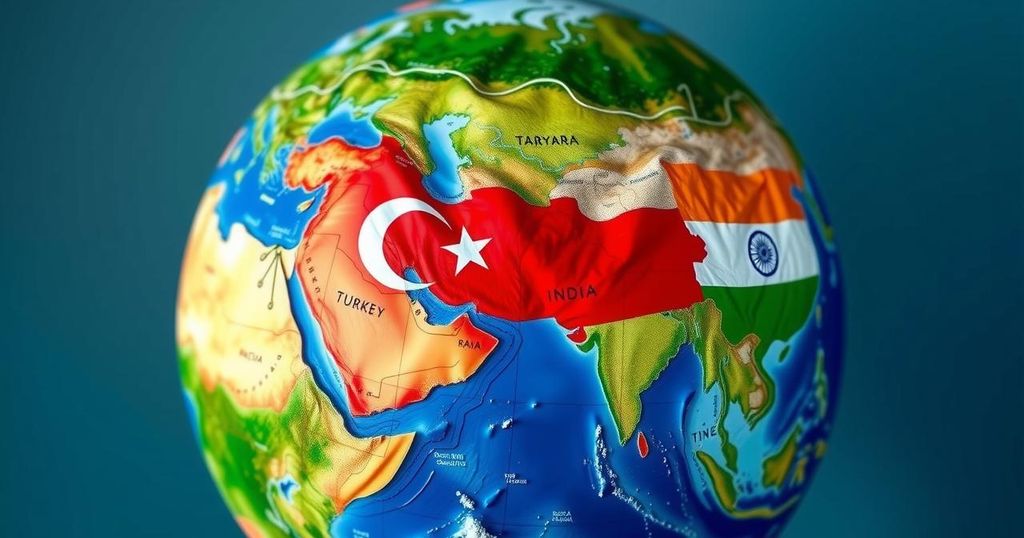India Must Recognize Turkey as a Sponsor of Terrorism: Insights from Michael Rubin

Michael Rubin, a Middle East expert, discusses Turkey’s role as a sponsor of terrorism, its relationship with Pakistan, and implications for India. He stresses the need for India to adopt a more aggressive diplomatic stance and suggests support for the Kurdish freedom movement as a counter to Turkey’s influence. The changing political landscape in the West indicates growing skepticism towards Turkey’s actions and potential designation as a state sponsor of terrorism.
In a detailed interview with IANS, Michael Rubin, a prominent Middle East expert, analyzes the intricate geopolitical dynamics involving Turkey, its relationship with Pakistan, and the implications for India. Rubin, affiliated with the American Enterprise Institute and the Middle East Forum, shares insights from his extensive experience in the region, which include several years in countries like Iran and Syria.
Regarding Abdullah Ocalan’s appeal for the PKK to disarm, Rubin discusses Ocalan’s isolation since 1999, suggesting that while he has transformed into a political philosopher, he lacks real command over the PKK. Following his arrest, the PKK diversified its leadership and response to calls for disarmament. Rubin emphasizes the pessimism within the PKK about Ocalan’s suggestions, reflecting a broader skepticism based on past ceasefire failures with the Turkish government.
Rubin further examines the impact of Turkey’s cooperation with Pakistan on India’s strategic interests. He supports the idea of India bolstering the Kurdish movement as a potential counter-strategy. He emphasizes that Erdogan’s historical pragmatism has transformed into a firm ideological stance, illustrating the Turkish leader’s consistent backing for Muslim groups worldwide, including contentious support for terrorism.
On the matter of India’s diplomatic approaches, Rubin asserts that India must adopt a more assertive posture, particularly given Turkey’s actions in supporting terrorism in Kashmir. He cites India’s effective cross-border airstrikes against Pakistani terrorists as a model for response, pointing out the need to adjust strategies based on adversarial actions.
In discussing Western perspectives on Turkey’s role among Islamists, Rubin notes a lack of cohesive policy direction from both the U.S. and Europe, compounded by the unpredictable nature of Trump’s stance. He highlights Congress’s growing skepticism towards Turkey, with many members acknowledging its support for terrorism. This could potentially lead to a robust bipartisan consensus against any further concessions towards Erdogan, especially in arms dealings.
The geopolitical landscape surrounding Turkey, particularly its relationships with Pakistan and implications for India, is complex. Michael Rubin argues for a more aggressive diplomatic strategy from India, reinforcing support for the Kurdish movement and responding effectively to Turkey’s involvement in terrorism. The shifting attitudes towards Turkey within Western political circles suggest a critical reevaluation of its international standing as a potential state sponsor of terrorism, particularly in relation to its influence over Islamist movements.
Original Source: www.thehansindia.com




